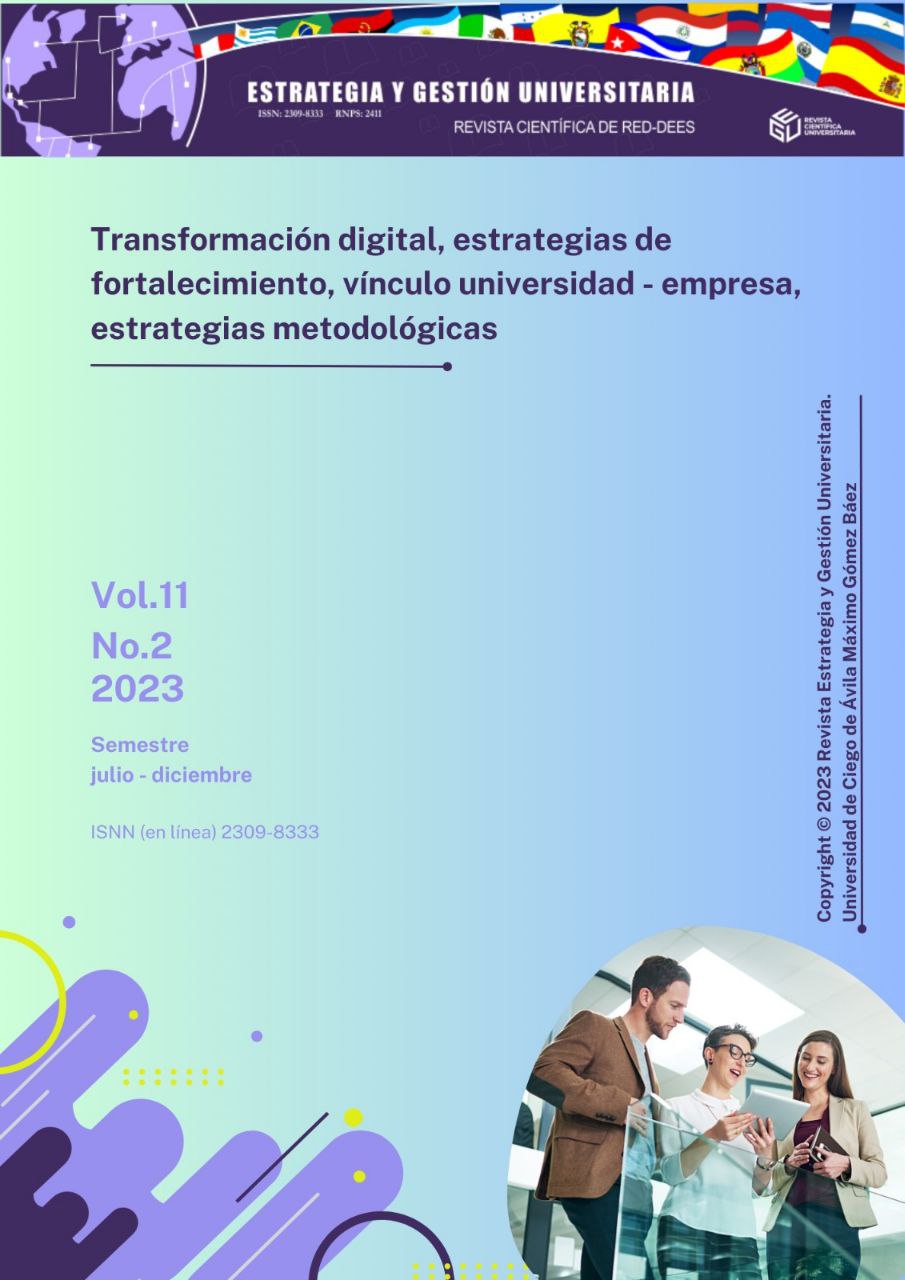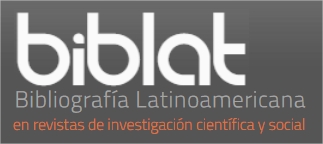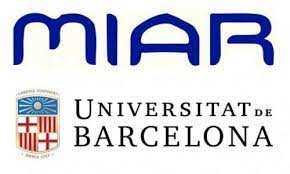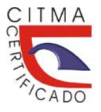Beyond training: The perception of nursing graduates and employers, Imbabura-Ecuador
DOI:
https://doi.org/10.5281/zenodo.8145100Keywords:
skills, education, nursing, employers, graduates, satisfactionAbstract
Introduction: Higher Education Institutions need to ensure the relevance and significance of their academic offerings and the competencies developed by graduates to become competitive professionals in a constantly changing market, where higher education plays a significant social role. Objective: to determine the satisfaction of graduates and employers regarding the Nursing training at an Ecuadorian Higher Education Institution. Method: the study had a quantitative approach, with a descriptive, cross-sectional scope, in a non-probabilistic convenience sample of 128 nursing professionals and 27 employers. Results: the study population is characterized as young adults, 72.6% female among graduates and 77.8% among employers. A total of 78.7% of graduates are highly satisfied with the training competencies and their relevance to professional performance, compared to 50.2% of satisfied employers. Conclusion: it is determined that the continuous quality assurance of nursing training will require permanent feedback from graduates and employers as a good practice mechanism for improving the various substantive processes of the Higher Education Institution.
Downloads
References
(CACES). (2022). Modelo de evaluación del entorno de aprendizaje de las carreras de enfermería en proceso de acreditación.
bin Abdullah, A. S. (2021). Leadership, Task Load And Job Satisfaction: A Review Of Special Education Teachers Perspective. Turkish Journal of Computer and Mathematics Education (TURCOMAT), 12(11), 5300-5306. https://doi.org/10.17762/turcomat.v12i11.6753
CACES. (2022). Examen-de-habilitacion-profesional – Caces.
Campion, M. A. (1988). Interdisciplinary Approaches to Job Design: A Constructive Replication With Extensions. Journal of Applied Psychology, 73(3), 467–480. https://doi.org/10.1037/0021-9010.73.3.467
Cora-Izquierdo, G. L., Rodríguez-Sabiote, C., & Álvarez-Rodríguez, J. (2018). Study of competencies for the Nursing programs of National University College of Puerto Rico from the perspective of students, teachers and employers. Educacion Medica, 19, 375–380. https://doi.org/10.1016/j.edumed.2017.06.005
Davis, K., & Newstrom, J. W. (2003). El comportamiento humano en el trabajo. Comportamiento Organizacional.
de Becerra, G. M. A., González, F. A. M., Reyes, J. E. A., Camargo, F. J. S., & Alfonso, Á. R. O. (2008). Seguimiento a egresados: Su importancia para las instituciones de educación superior. Teoría y praxis investigativa, 3(2), 61-65. https://dialnet.unirioja.es/servlet/articulo?codigo=3701001
Ebner, C., & Gegenfurtner, A. (2019). Learning and satisfaction in webinar, online, and face-to-face instruction: a meta-analysis. In Frontiers in Education (Vol. 4, p. 92). Frontiers Media SA. https://doi.org/10.3389/feduc.2019.00092
Espinosa, V., De La Torre, D., Acuña, C., & Cadena, C. (2017). Los recursos humanos en salud según el nuevo modelo de atención en Ecuador. American Journal of Public Health, 41, 1–5. https://doi.org/10.26633/rpsp.2017.52
Gómez-Molina, S., Palacios-Moya, L., Berrio-Calle, J. E., Gaviria-Zapata, S., Quiceno-Merino, L. M., & Figueroa-Álvarez, P. (2019). Modelo de satisfacción de egresados universitarios: un estudio de caso (College Graduate Satisfaction Model: A Case Study). Journal of Marketing Research, 24(4), 432–437. https://doi.org/10.1177/002224378702400412
González-Chordá, V. M., & Maciá-Soler, M. L. (2015). Evaluation of the quality of the teaching-learning process in undergraduate courses in nursing. Revista Latino-Americana de Enfermagem, 23(4), 700–707. https://doi.org/10.1590/0104-1169.0393.2606
Huyhua Gutierrez, S. C., & Tejada Muñoz, S. (2020). Satisfacción del empleador sobre las competencias del egresado de enfermería de una universidad pública licenciada. ACC CIETNA: Revista de La Escuela de Enfermería, 7(2), 93–101. https://doi.org/10.35383/cietna.v7i2.513
Kar, A. K. (2021). What affects usage satisfaction in mobile payments? Modelling user generated content to develop the “digital service usage satisfaction model”. Information Systems Frontiers, 23(5), 1341-1361. https://doi.org/10.1007/s10796-020-10045-0
López, Z. (2017). Satisfacción de empleadores por el cumplimento del encargo social de los egresados de maestrías de amplio acceso. In Humanidades Médicas (Vol. 17, Issue 2).
Malvárez, S. M., & Castrillón, M. C. (2006). Panorama de la fuerza de trabajo en enfermería en América Latina. Primera parte. Rev Enferm IMSS, 14(2), 101–116.
Martínez, C., & Pereira, M. (2018). Opinión de los empleadores sobre el desempeño de egresados del Programa de Enfermería de la Universidad de Sucre. Colombia. Revista Espacios, 39(29). http://www.ifac.portafolio.revistaespacios.com/a18v39n29/18392905.html
Mieles, M. A. T., Vélez, F. M. C., Chóez, L. S., Villao, J. Y. R., Chaves, C. G., & Benítez, S. P. (2019). Empleabilidad, educación permanente, la inserción laboral y las necesidades profesionales de los graduados de la carrera de enfermería. Un estudio de caso. Centro de Investigación y Desarrollo Ecuador.
Mori, J., Sempé, L., Colquehuanca, R., Guerrero, L., Andrade, P., Gargurevich, J., & Silva, J. (2018). Diseño de un sistema de seguimiento de egresados y una estrategia para la implementación de dicho sistema. In Sistema Nacional de Evaluación, Acreditación y Certificación de la Calidad Educativa [SINEACE].
Muñoz, M. N., Rodríguez, P., Hincapié, J., Agudelo, A. M., & Ramírez, R. (2013). Percepción de empleadores sobre las competencias de graduados del Programa de Enfermería de la Fundación Universitaria del Área Andina de Pereira (Colombia). Cultura Del Cuidado, 9(2), 22–38. http://unilibrepereira.edu.co/publicaciones/index.php/cultura/article/view/77
Pardo Merino, A., & Ruiz Díaz, M. Á. (2005). Análisis de datos con SPSS 13 Base. McGraw-Hill/Interamericana. https://dialnet.unirioja.es/servlet/libro?codigo=570214&info=resumen&idioma=SPA
Pujol-Cols, L. J., & Dabos, G. E. (2018). Job satisfaction: A literature review of its main antecedents. In Estudios Gerenciales, 34(146), 3–18). https://doi.org/10.18046/j.estger.2018.146.2809
Ramirez, M., Resendiz, M., & Resendiz, M. (2017). Metodología de seguimiento de egresados para fortalecer la vinculación de la universidad con la sociedad. Revista Global de Negocios, 5(3), 99–111. http://dialnet.unirioja.es/servlet/articulo?codigo=2195346
Rogan, M., & Reynolds, J. (2015). Institute of Social and Economic Research Schooling inequality, higher education and the labour market: evidence from a graduate tracer study in the Eastern Cape, South Africa CORE View metadata, citation and similar papers at core.ac.uk provided by South.
Ruggeri, K., Garcia-Garzon, E., Maguire, Á., Matz, S., & Huppert, F. A. (2020). Well-being is more than happiness and life satisfaction: a multidimensional analysis of 21 countries. Health and quality of life outcomes, 18, 1-16. https://doi.org/10.1186/s12955-020-01423-y
Sánchez, J. (2014). Y Acreditación De Programas Universitarios En Administración. Estudios Gerenciales, 30(133), 419–429. http://dx.doi.org/10.1016/j.estger.2014.06.002
Unesco-IESALC. (2018). Declaración de la CRES 2018. Revista Universidad de La Salle, 0, 24.
Published
How to Cite
Issue
Section
License
Copyright (c) 2023 Estrategia y Gestión Universitaria

This work is licensed under a Creative Commons Attribution-NonCommercial-ShareAlike 4.0 International License.























